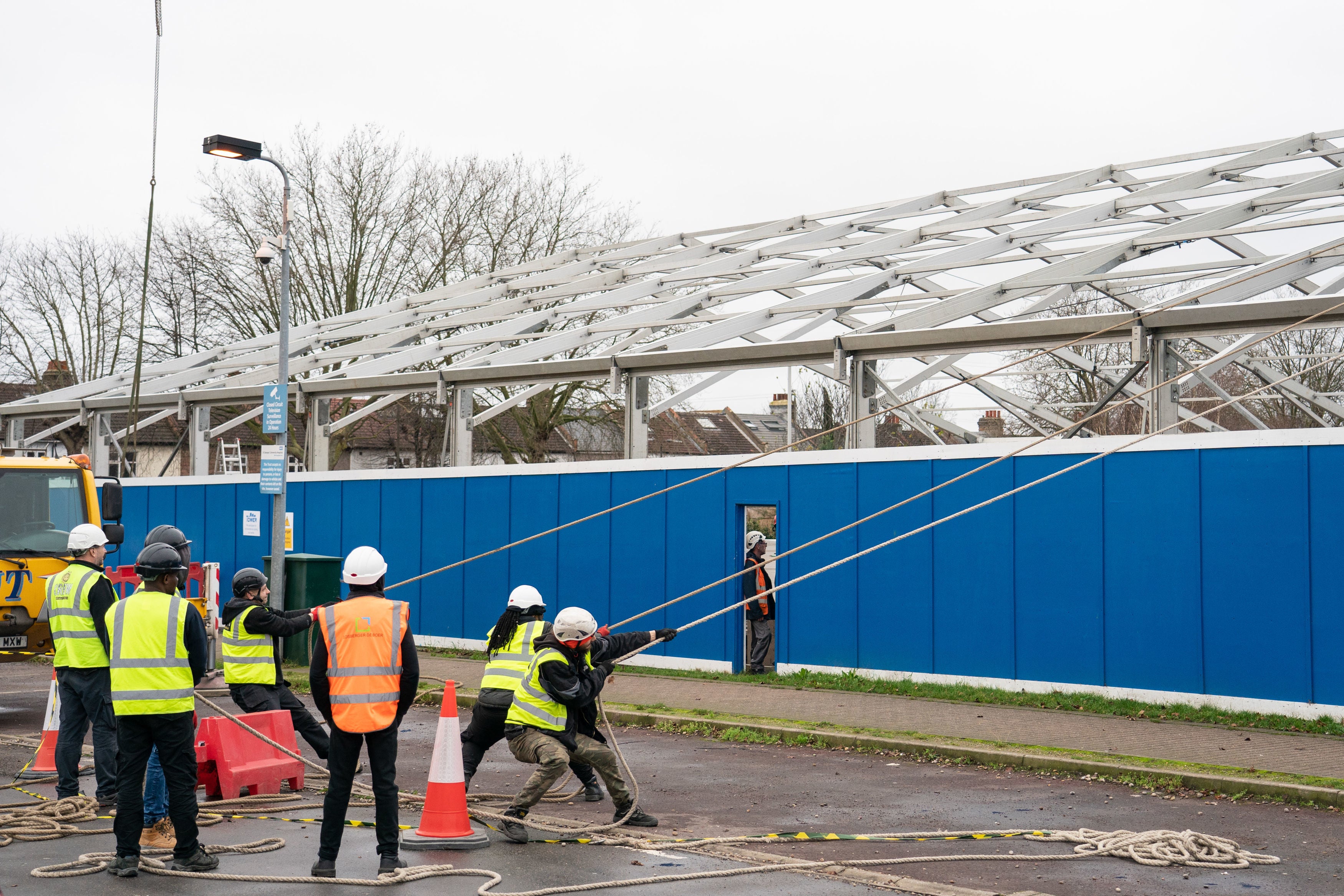The ‘Nightingale’ hospitals are back – at least the government is taking the threat to the NHS seriously
Editorial: It is still perfectly possible that Omicron could overwhelm the hospitals

Amidst the warm upbeat talk from ministers about “cautious celebrations” (surely an oxymoron) and the new year party preparations, at least in England, intrudes a chill air. The “Nightingale” hospitals are back.
Not, mercifully, in their original form, as vast warehouse-style accommodation for mass Covid victims struggling for breath, but as smaller “Nightingale surge hubs”, set up in car parks and other spaces outside major hospitals across England to deal with an expected rise in demand for hospital beds. They will be temporary structures, and may not be needed. On the other hand…
As far as can be judged, the wave of cases expected after the emergence of the more infective Omicron variant has indeed not yet converted into a proportionately large spike in hospitalisations and mortality. This is also expected, given that the consensus is that Omicron seems to cause very severe illness in fewer cases than Delta – and where those illnesses occur, they tend to be shorter than in past waves – also due to leaps forward in Covid treatments and clinical techniques.
Still, Covid cases are 40 per cent up on the week, and it is early days. The risks of a larger spike in hospitalisations are now increased because of the shortage of lateral flow and PCR testing.
A shortage of NHS staff is also increasing the dangers to health – and it is unclear where the extra staff and equipment for the new Nightingale hubs will be found. Perhaps even more non-Covid care will be lost.
In any event, it is still perfectly possible that Omicron could overwhelm the hospitals. Contrary to some of the crankier talk on social media, Omicron infection is more serious than the common cold.
Hence the caution behind the announcement of an increase in hospital capacity. It is welcome in the sense that at least Sajid Javid and the Department of Health is taking the threat to the NHS seriously. The move might also make revellers think twice about going out without a lateral flow test (if they can get one). It is nonetheless a disturbing development, because it does signal a possibly very difficult few weeks for the health services – with ambulances, GP surgeries and ICU wards under extreme, if short term, pressure.
The lingering suspicion must be that this is a gamble, for England, by ministers driven by the arcane internal politics of the Conservative Party. Things have evolved in a dangerous way. England finds itself in the strange place where cabinet ministers such as Jacob Rees-Mogg now seem to think they understand the pandemic better than the scientists.
When the pandemic began, the mantra was that the science was driving draconian decisions. Then it was matter of ministers “following the science”. Then they were being “guided” by the science. Then it was the matter of “advisers advise, ministers decide”. Now it seems that science can be ignored, if the politics demand it – and even dismissed as plain wrong.
To keep up to speed with all the latest opinions and comment sign up to our free weekly Voices Dispatches newsletter by clicking here
It is almost as if the suspicion of economists and other experts ingrained and institutionalised during Brexit has morphed into a rejection of epidemiology and virology, and the derision of the likes of Professor Chris Whitty as “doomsters” and “scaremongers”, obsessed with locking down for some unspecified mysterious ends.
In Scotland, Wales, Northern Ireland and much of Europe, caution and rationality have prevailed, the precautionary principle has survived, and the science is still being followed. Soon we will learn who is right.
But even if the prime minister’s gamble does come off, it was still the wrong thing to do to play with other people’s lives, as it was on all the previous occasional where he has cut corners and cost lives needlessly.
If the gamble doesn’t come off, many will pay the price for the strange rise of the anti-scientific primitives on the Tory backbenches.






Join our commenting forum
Join thought-provoking conversations, follow other Independent readers and see their replies
0Comments